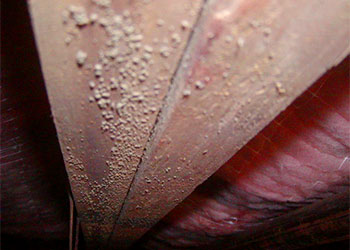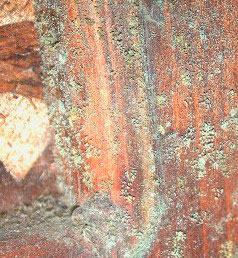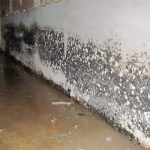Aspergillus Mold and Aspergillosis – Have you ever heard about Aspergillus mold or fungus? It is the mold responsible for many health conditions and ailments. When you are ‘attacked’ by the mold, you will likely suffer from Aspergillosis, which is an allergic reaction or infection caused by the mold. The fungus can be generally found in dead leaves and decaying vegetation. Those who are exposed to the fungus don’t always develop a medical issue. It depends on your condition and immune system, really. If you have an already existing lung disease or a weak immune strength, you will likely be affected by the mold.
Different Types of Aspergillosis

As it was mentioned before, this Aspergillus Mold and Aspergillosis will react on different people with different conditions. Not to mention that different aspergillosis types will lead to different signs and symptoms too.
For a starter, the ABPA (Allergic Bronchopulmonary Aspergillosis) is the condition where the mold can cause allergic reactions. The common reactions are wheezing and coughing. If you already have a certain lung conditions (like asthma or cystic fibrosis), your chance of suffering from the ABPA will be bigger, especially when you are exposed to the mold. The symptoms may include shortness of breath, difficulty in breathing, and many other discomfort feelings.
See also : Black Mold in House: The Cause and How to Deal with It
In case you have a weak immune system from AIDS, cancer, leukemia, or chemotherapy, you may suffer from invasive Aspergillosis. Your weak condition will be difficult to fend off infections so the mold can attack your lung tissues and then move forward to brain or kidneys. Infectious pneumonia is the result if your condition isn’t treated well. Invasive Aspergillosis may include symptoms like fever, chest pain, shortness of breath, or cough (which is often accompanied by blood).
Aspergilloma and Aspergillus Mold

If you have an existing condition such as lung disease or tuberculosis, exposure to Aspergillus Mold and Aspergillosis can create a fungus growth or fungus ball, consisting of white blood cells, clots, and fungus. Such fungus ball usually stays in its place and doesn’t spread but it is possible that the ball becomes bigger and creates a serious damage to the lung tissue.
Treatments and Care
In most cases, medication involving antifungal drugs will be administered. Intravenous or oral drugs are the common type. It is also possible to have a surgery procedure especially if the fungus has caused serious damages, such as heart valves infection. Once the surgery completes, you will be treated with extensive antifungal care. That’s why you should never underestimate Aspergillus Mold and Aspergillosis and be extra careful about its existence.




